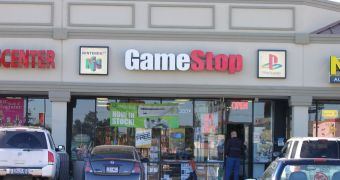Daniel DeMatteo, Gamestop's CEO, has announced record sales after the first fiscal quarter of 2010. The retailer's earnings grew 5.1 percent to a staggering 2.08 million dollars that amounts to a 6.8 percent year to year rise of profits for the company. This first quarter, for example, has brought 75.2 million dollars in revenue for Gamestop. This is made even more remarkable by the fact that, in the last months, total entertainment software sales have gone down, according to recent NPD numbers.
The brick and mortar business attributes these successful results to the used products market. Gamestop buys from its customers used game discs and then sells them at a lower price. The money earned this way remains in the store and no cut is given to the game's publisher or any of the platform owners like Sony or Microsoft. Another reason for this increase were this Spring's big releases that have hit the store shelves, including names like Battlefield Bad Company 2, God of War III or Final Fantasy XIII.
In his latest press conference, DeMatteo stated that, “By maintaining a sharp focus on our customer needs and overall business execution, our strong brick and mortar business continues to provide the capital needed to invest in new stores as well as execute our strategic plan to incorporate digital gaming into our global operations.” Gamestop also plans to start selling downloadable content in a few test venues and begin a customer loyalty program in some countries.
Publishers have long sought to discourage the used game sales as it does hurt their own earnings. Usually, the second-hand customer gets the same experience as the first-hand one, as Gamestop and other retailers that use the business practice make sure that the game discs are in good shape. Electronic Arts has produced “Project Ten Dollar,” a strategy to combat this kind of market by charging used titles owners ten dollars to access content that would otherwise be free.

 14 DAY TRIAL //
14 DAY TRIAL //